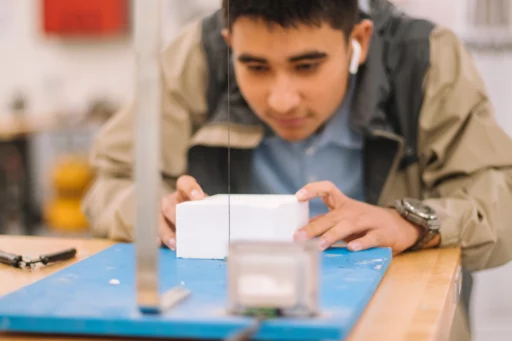Artificial intelligence (AI) is transforming numerous businesses in an era of rapid technical breakthroughs. While AI offers up new possibilities and improves our lives, it also raises concerns about job displacement and the future of work. As time goes on, it becomes clear that we must establish a balance between technology and traditional abilities. One important way to attain this equilibrium is to revitalize shop classes in schools. In this blog article, we will discuss the significance of shop classes in light of the impact of AI and the growing demand for qualified tradespeople.
The Advancement of Artificial Intelligence
Artificial intelligence is transforming the workplace by automating regular tasks, increasing efficiency, and improving decision-making processes. Jobs that rely primarily on repetitive, predictable tasks are increasingly vulnerable to automation as AI advances. Data entry, assembly line jobs, and some administrative positions are at risk of becoming obsolete.
However, it is critical to recognize that AI cannot duplicate professional tradespeople’s creativity, workmanship, and adaptability. While AI can perform precise tasks, it still requires human participation and skill in complicated problem-solving, critical thinking, and hands-on application. This is when the importance of shop classes becomes clear.
The Rebirth of Shop Classes
Education has recently changed to emphasize STEM (Science, Technology, Engineering, and Mathematics) sectors. While STEM education is unquestionably important, it should not be at the expense of ignoring the practical and vocational skills provided by shop classes. Shop programs, which are frequently linked with carpentry, metalworking, automobile repair, and other hands-on trades, offer students an invaluable foundation of practical knowledge and experience.
Improving Problem-Solving Capabilities
Students in shop classes learn problem-solving skills by tackling real-world difficulties with critical thinking and ingenuity. These classes foster resourcefulness, spatial intelligence, and the capacity to think on one’s feet, all of which are important in the face of AI breakthroughs. Students’ ability to diagnose, fix, and adapt to unforeseen conditions prepares them for a future in which technology and human inventiveness must coexist.
Growing Entrepreneurial Possibilities
With the correct leadership and instruction, shop classes can function as incubators for aspiring entrepreneurs. Students who are exposed to various trades and craftsmanship get the confidence and practical abilities required to launch their own businesses. AI and skilled crafts can coexist to provide creative solutions and niche markets that rely on human experience. By cultivating entrepreneurial mindsets, shop classes enable students to pursue alternative career choices and create their own chances.
Meeting the Need for Skilled Tradespersons
While certain positions may be automated, demand for experienced tradespeople is expected to stay stable, if not expand. As artificial intelligence advances, there will be greater demand for technicians, repair specialists, and experts who can collaborate with intelligent systems. As technology advances, the experience of professional tradespeople in sectors such as construction, plumbing, electrical work, and mechanical maintenance becomes increasingly vital. Shop classes lay the groundwork for developing these skilled individuals and bridging the technological and traditional craftsmanship divides.
Conclusion
In the face of AI’s inevitable advancement, realizing the ongoing necessity for trained tradespeople is critical. By returning shop classes into our educational system, we ensure that students obtain a comprehensive education that blends STEM courses with hands-on practical skills. Adopting AI and skilled trades integration allows us to leverage the power of technology while keeping the incomparable craftsmanship and problem-solving talents of the human touch. We are raising a generation that can adapt, innovate, and succeed in the shifting landscape of the future through shop classes.


